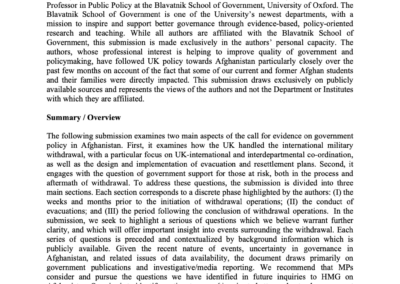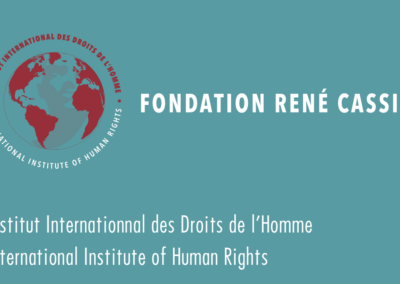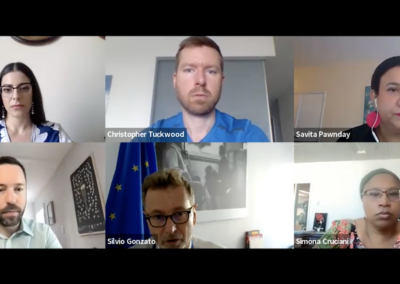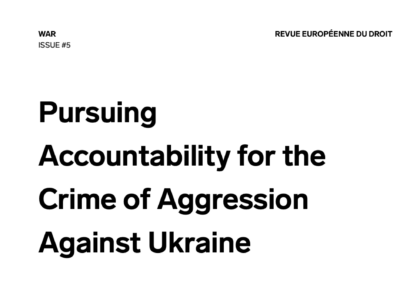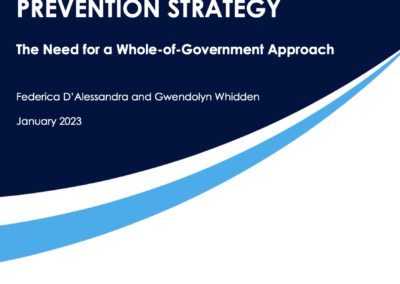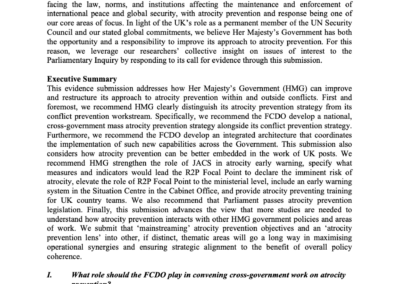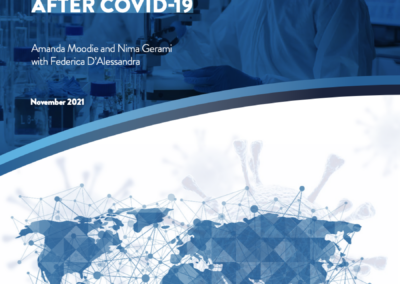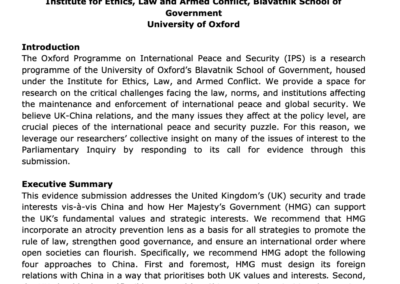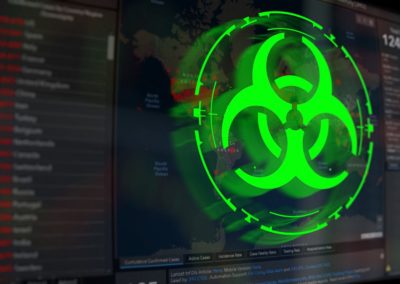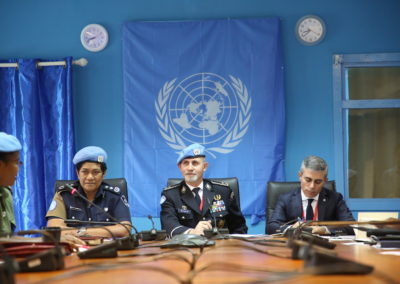As part of its mission, ELAC has established the Oxford Programme on International Peace and Security (IPS) to look beyond the threshold of armed conflict and contribute to our collective understanding of other forms of organised violence that threaten our international peace and stability.
The programme aims to provide a space for research on the critical challenges facing the law, norms and institutions affecting the maintenance and enforcement of international peace and global security. IPS focuses equally on normative and strategic questions, as well as operational and tactical issues, with an eye to balancing individual rights and collective security needs.
In the context of our research, we engage with a range of stakeholders which include regional and international bodies, as well as domestic institutions with competence in foreign relations, defence, intelligence and other relevant fields. We also constitute a hub for the study of public policy leadership and particularly individual contributions to normative and political theory.
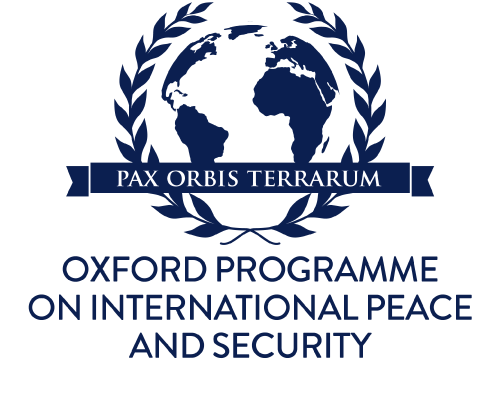
IPS Publications
Latest Publications

Early Warning in Atrocity Scenarios Must Account for the Effects of Technology, Good or Bad
The potential impact of technology on mass atrocity scenarios has long raised questions for experts and policymakers in the field of atrocity prevention. In the two decades since the adoption of the Responsibility to Protect norm and the emergence of atrocity prevention as a discipline, developments in the “digital revolution” and the advent of the “information age” have influenced atrocity scenarios in countless ways, both positively and negatively. Yet, despite its clear and growing importance, the subject remains underexplored and poorly understood. While the field better understands how different technologies relate to atrocities, a lack of systematic engagement with the topic and its many nuances still leaves major knowledge gaps, making it difficult to fully and constructively harness technology for prevention or to mitigate its harmful effects. Read more

Thinking Beyond Risks: A Symposium on Tech and Atrocity Prevention
This symposium seeks to identify opportunities for governments and civil society to harness both new and established technologies for atrocity prevention, as well as to proactively mitigate associated risks. Experts will outline, for example, the impact of technology on early warning, how social media has affected atrocity dynamics and how it might be harnessed to further adherence to the laws of war, and even how camera-fitted drones can aid accountability. Read more

Conceptualizing Great Power Perpetrators
This article aims to inform ongoing debates by scrutinising veto patterns through UN history; by adding nuance to discussions by addressing shifting geopolitics and by drawing attention to global cooperation; by leveraging the analysis of the 'Great Power Perpetrator'; and by discussing how the system itself seems to be morphing in response to the challenges and what this means for global cooperation moving forward. Read more
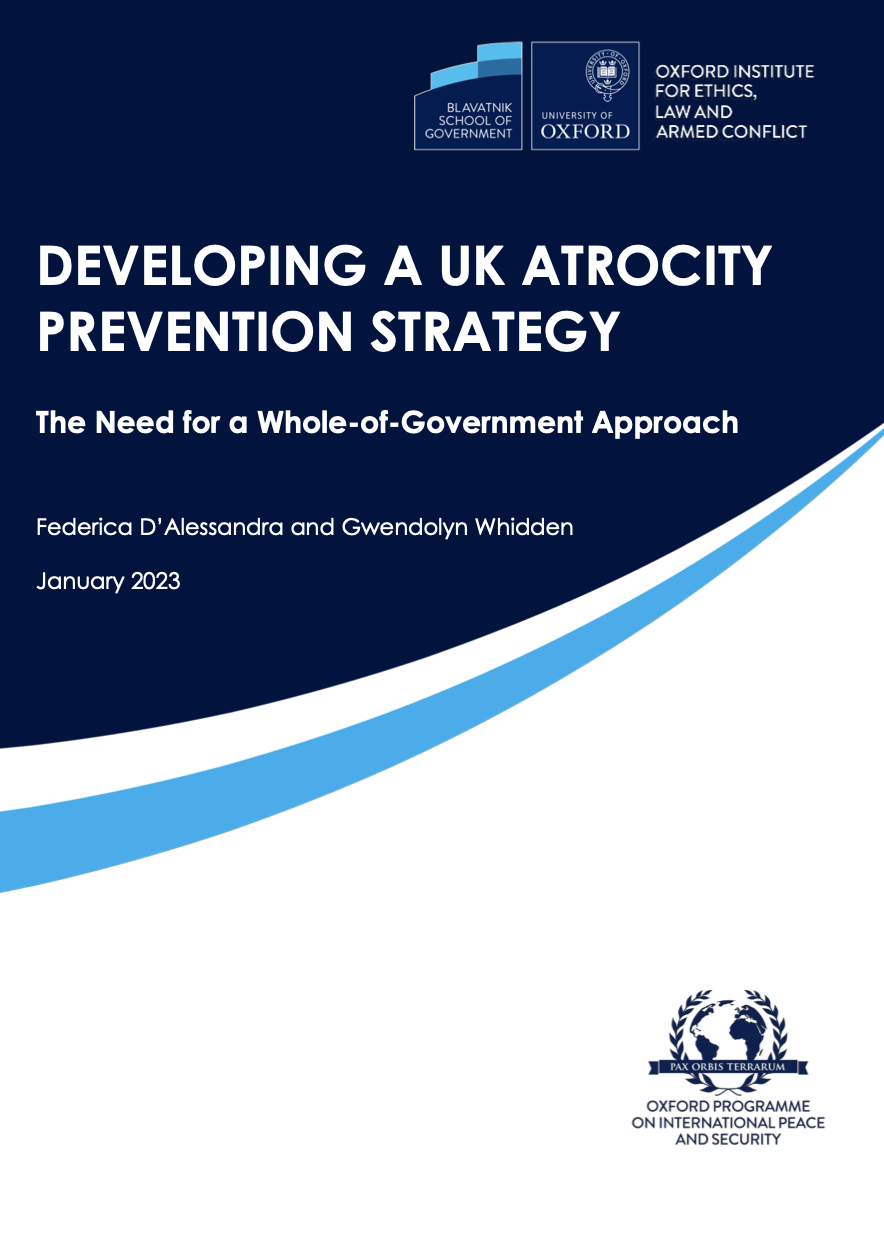
Developing a UK Atrocity Prevention Strategy
Policy Brief, Oxford Programme for International Peace and Security, January 2023 Read more
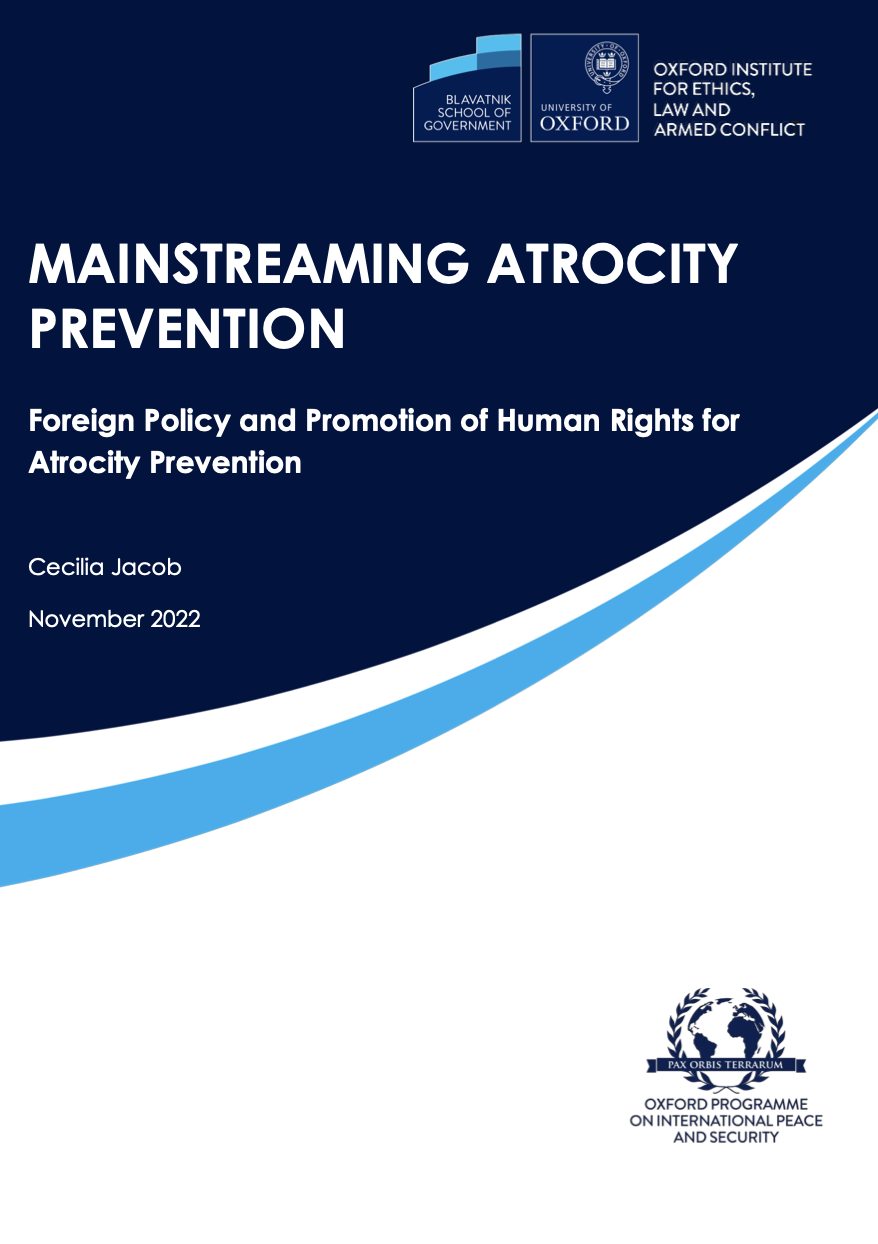
Mainstreaming Atrocity Prevention
Policy Brief, Oxford Programme for International Peace and Security, November 2022 Read more
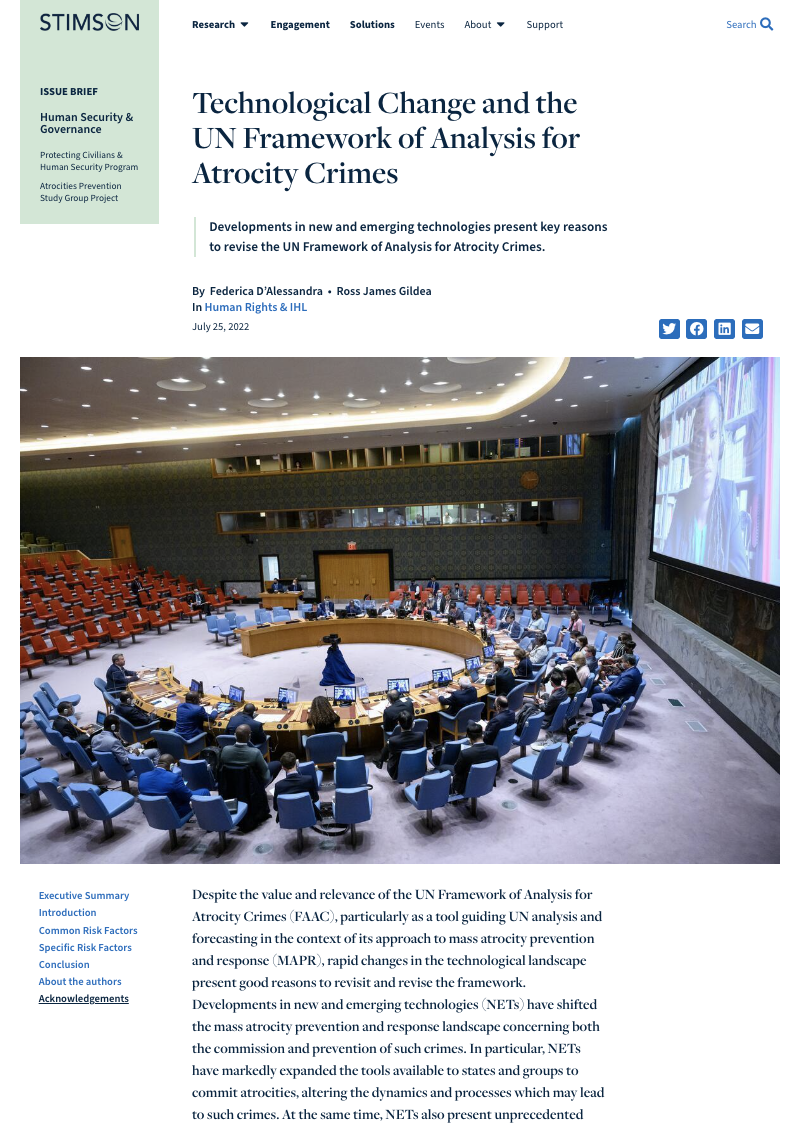
Technological Change and the UN Framework of Analysis for Atrocity Crimes
Policy Paper, Stimson Center, July 2022 Read more
IPS News
Latest News
IPS Policy Engagement
Policy Engagement
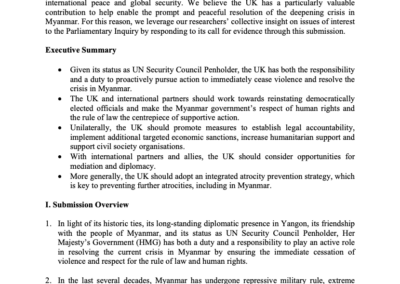
Written Evidence Submission to UK Parliamentary Inquiry on the UK Response to the Myanmar Crisis
Read more